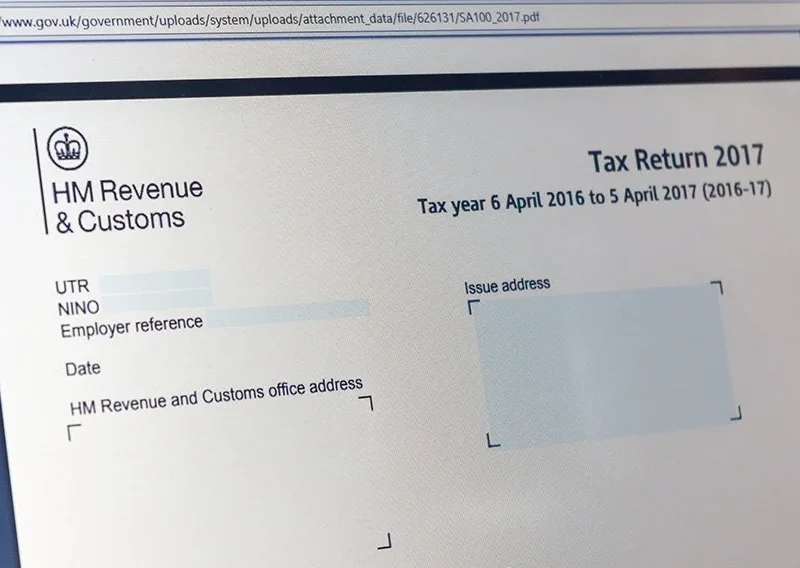To pay less tax on rental income, you can do a few things. First, you can subtract certain expenses, like repairs or fees, from your income. You can also use something called depreciation, which means you can subtract a little bit of the property’s cost each year. Timing when you pay expenses and get income can also help lower your tax.
There are some special rules you need to know, like passive activity rules, but they’re not too complicated. If you own the rental property in a certain way, like through a company, you might pay less tax too. And if you want to sell your rental property and buy another, you can use a special trick called a 1031 exchange to delay paying taxes on the profit.
It’s important to keep good records of everything you spend and earn, and it’s a good idea to talk to someone who knows about taxes to make sure you’re doing everything right and fair.
How to Deduct Rental Expenses Effectively?

Deducting rental expenses effectively involves thorough record-keeping and understanding of the tax laws. Here’s a guide to help you:
Keep Detailed Records
Maintain a separate bank account for your rental property income and expenses to streamline record-keeping. Save all receipts, invoices, and bills related to rental expenses, including repairs, maintenance, utilities, insurance premiums, property taxes, and mortgage interest.
Additionally, keep track of rental income, including rent payments, security deposits, and any other sources of income related to the property.
Identify Deductible Expenses
Deductible mortgage interest includes interest on loans used to acquire, improve, or refinance the rental property. Real estate taxes levied on the rental property are generally deductible.
Premiums for insurance policies covering the rental property, such as property insurance and liability insurance, are deductible.
Expenses for repairs and maintenance necessary to keep the rental property in good operating condition are deductible. This includes fixing plumbing issues, repairing appliances, painting, and similar upkeep.
Costs for utilities paid by the landlord, such as water, gas, electricity, and garbage collection, are deductible.
If you hire a property management company to handle day-to-day operations, their fees are deductible.
Expenses incurred to advertise the rental property, such as listing fees on rental platforms or newspaper ads, are deductible.
The cost of the rental property can be recovered over time through depreciation deductions. Consult IRS guidelines for the appropriate depreciation method and recovery period based on the property’s classification.
Differentiate Between Current Expenses and Capital Expenses
These are expenses incurred for the ongoing maintenance and operation of the rental property and are fully deductible in the year they are paid or incurred.
Expenditures that improve the property or extend its useful life, such as renovations, additions, or significant repairs, are considered capital expenses and are typically capitalized and depreciated over time.
Understand Depreciation
Depreciation allows you to deduct a portion of the property’s cost each year as an expense. The IRS provides guidelines for calculating depreciation based on the property’s cost, recovery period, and depreciation method.
Utilize the Passive Activity Loss Rules
The IRS’s passive activity loss rules limit the deduction of rental losses against other income if you are not considered a real estate professional and have limited involvement in managing the rental property.
Moreover, these rules can be complex and may require careful planning to maximize deductions within the allowed limits.
Consider Deductible Home Office Expenses
If you use a portion of your home exclusively for managing your rental activities, you may be able to deduct related expenses, such as a percentage of utilities, insurance, and maintenance, based on the portion of your home used for rental business purposes.
Take Advantage of Deductions for Travel and Transportation
Expenses incurred for travel to and from the rental property for management purposes are deductible.
This includes mileage or actual expenses for vehicles, airfare, lodging, and meals incurred while traveling for rental-related activities.
Document Personal Use of the Property
If you use the rental property for personal purposes, such as vacation rentals or occasional personal use, you can only deduct expenses for the portion of time the property is rented out.
You can maintain accurate records to support the allocation of expenses between personal and rental use.
What are the Key Tax Rules for Rental Income?

Key tax rules govern how rental income is treated for tax purposes. Rental income is generally taxable and must be reported on your tax return, encompassing rent payments, advance rent, security deposits if retained as income, and other payments for property use. Conversely, certain expenses related to renting out the property are deductible, such as mortgage interest, property taxes, insurance premiums, repairs, utilities, and depreciation.
Depreciation allows the gradual recovery of the property’s cost over time. Passive activity loss rules limit rental loss deductions for those with limited involvement in management. Personal use of the property impacts deductions, allowing only expenses during rental periods. Reporting rental income on Schedule E of Form 1040 is essential, detailing income and expenses including depreciation.
Moreover, adequate record-keeping is crucial, supporting deductions and facilitating potential audits. Depending on your ownership structure, additional forms like Form 8825 might be necessary. Understanding state and local tax regulations is vital, as they can differ from federal rules. Compliance with these tax rules ensures effective management of your rental property finances and adherence to IRS guidelines.
Optimizing Tax Strategies for Rental Properties

Optimizing tax strategies for rental properties involves a comprehensive approach aimed at maximizing deductions, minimizing tax liabilities, and strategically structuring investments to achieve long-term financial goals. Here’s a more detailed expansion on each strategy:
Maximize Deductions
This means you should consider more than just the big expenses like mortgage interest and property taxes.
Moreover, you should also remember smaller costs that are easy to overlook, like insurance premiums, repairs, maintenance, utilities, property management fees, advertising, legal fees, and even travel expenses for managing the property.
Accurate record-keeping is crucial to ensure that you capture all deductible expenses. Use dedicated accounting software or enlist the help of a professional accountant to maintain organized records throughout the year.
Utilize Depreciation
The IRS provides guidelines for depreciating rental property assets over their useful life. Ensure you understand the applicable depreciation methods, recovery periods, and conventions.
In addition, these studies can help accelerate depreciation deductions by identifying and reclassifying certain property components for shorter recovery periods, resulting in increased tax savings.
Consider Cost Segregation
Cost segregation studies involve identifying and reclassifying certain components of a property to shorter depreciable lives, potentially accelerating depreciation deductions and reducing taxable income.
Qualified Business Income Deduction (QBID):
The QBID allows eligible taxpayers to deduct up to 20% of their qualified business income from rental real estate activities. Understanding the eligibility criteria and limitations of the QBID can help optimize tax savings.
Use Section 1031 Exchanges
Section 1031 exchanges allow for the deferral of capital gains taxes when selling a rental property and reinvesting the proceeds into another like-kind property.
Properly executed, this strategy can facilitate tax-deferred growth and enhance overall investment returns.
Explore Passive Loss Rules
Passive activity loss rules limit the ability to deduct losses from passive activities (such as rental real estate) against other sources of income.
However, active participation in rental property management may allow for the deduction of up to $25,000 in rental real estate losses against other income, subject to income limitations.
Hire a Tax Professional
Consult with a tax professional specializing in real estate taxation to develop a tailored tax strategy aligned with your investment objectives.
A knowledgeable tax advisor can provide valuable insights, navigate complex tax rules, and ensure compliance with relevant regulations.
Consider Entity Structure
Evaluate the benefits of different entity structures (such as sole proprietorship, partnership, LLC, or S corporation) for holding rental properties.
Each structure has unique tax implications, liability considerations, and estate planning advantages that should be carefully considered in light of your specific circumstances.
FAQ’s
What’s the tax rate for non-residents renting in the UK?
Non-residents renting in the UK usually pay 20% tax on their rent, but it can change depending on their situation.
Do I pay tax on UK rent if I live abroad?
Yes, even if you live abroad, you still have to pay tax on rent from UK property, but the rules might change based on where you live.
What if I don’t tell the UK about my rent?
Not telling the UK about your rent is bad, like breaking a rule. You could get in trouble and have to pay fines or other consequences.
How long must I live in my rental to avoid UK tax when selling?
To avoid tax when selling your rental in the UK, you usually need to have lived there as your main home for at least 9 months out of the last 18 months.
What can I subtract from my UK rental money?
You can take away some costs from your rental money in the UK, like money you spent on fixing the house or paying the mortgage.
Final Words
We’ve talked about some smart ways to pay less tax when renting out property. Just keep track of what you spend and earn, follow the rules, and ask grown-ups who know about taxes for help. With these tricks, you can keep more of your rental money for yourself!



